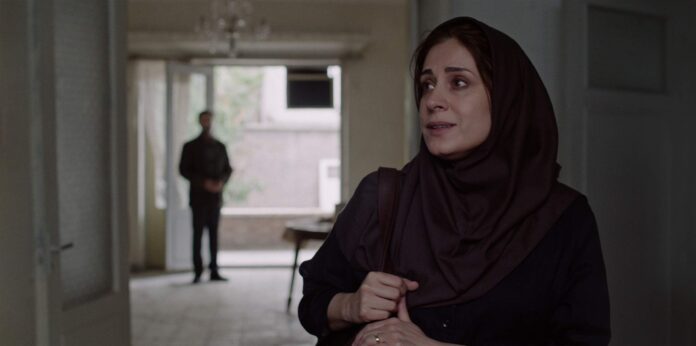Ballad of a White Cow, from Iran, is a sad film. But it’s careful not to overwhelm you with too much emotion. It knows how much to show and when. Some of the most upsetting emotional moments stay at a considerable distance from us, with the aid of the camera. This is, after all, a film about the debilitating after-effects of an innocent man’s murder. Of course, it’s the man’s widow who is left to bear the brunt. When Mina (Maryam Moqadam) visits her husband on death row, the meeting happens behind a closed door. The film makes us wait outside before gradually taking us away while we hear sounds of her breaking down. The husband remains voiceless, literally and figuratively. But in a later breakdown, we are made to stay with her and see her let it all out. Because this time, the blow happens to be far more severe. It turns out they have found the real murderer. Can you imagine that?
Directors: Maryam Moqadam, Behtash Sanaeeha
Cast: Maryam Moqadam, Alireza Sanifar, Pouria Rahimi Sam
Streaming on: Mubi
The film, directed by Maryam Moqadam and her partner Behtash Sanaeeha, gets many emotions across with minimal dialogues. Maryam Moqadam is terrific, and so is her co-stars. Earlier, I implied the film tries to shield us from strong emotions. Interestingly, all the characters in Ballad of a White Cow don’t react too harshly, even when experiencing a whirlpool of intense feelings that are supposed to throw them off course. Some of the most moving moments in the film have Mina interacting with her hearing-impaired daughter. The mother has told her little one that her father is “far away”. But we get the sense that the daughter knows that something is amiss. She also lets her mother know that she is not interested in school. At one point, Mina is summoned to her daughter’s school and informed of a small problem: the girl has been lying to everyone about her father. Mina tells the teacher it’s because she asked her to do so. When the teacher asks Mina about her husband, it’s the mother’s turn to lie.
The early portions find Mina a year since her husband’s execution. When her husband’s brother continually insists that she cheer up, we sense ulterior motives. He seemingly wants to occupy the void left by her husband. He is one of the problems she finds difficult to deal with besides the little matter of seeking some closure via an apology letter from the responsible law enforcers. When a mysterious benefactor turns up and claims to return the money he claims to have borrowed from her husband, her landlord evicts her. The reason? No unrelated men allowed. We never get to see the landlord, except for his wife. Now the film does something interesting here. The women are relatively more progressive, unlike the men who reveal their narrow-mindedness over having one’s friends over or keeping a pet. (Last year, there were reports of Iran considering a bill to ban pets, a move met with strong opposition from animal lovers in the country.) Mina is reminded of this distressing scenario again when she goes to a real estate office.
Ballad of a White Cow reminded me of another film that dealt with guilt and retribution, albeit in a much different context. In Nuri Bilge Ceylan’s Once Upon a Time in Anatolia, past ‘sins’ torment a prosecutor while on official duty. Ballad, too, has a similar character who tries to make amends for a relatively weightier mistake. When the disturbing revelation finally arrives, the camera moves away to focus on the ‘culprit’ instead of the listener, as if it finds the moment too painful. It leads to a remarkably unsettling climax with two possible meanings.
#searing #portrait #loss #guilt #retribution #Cinema #express

